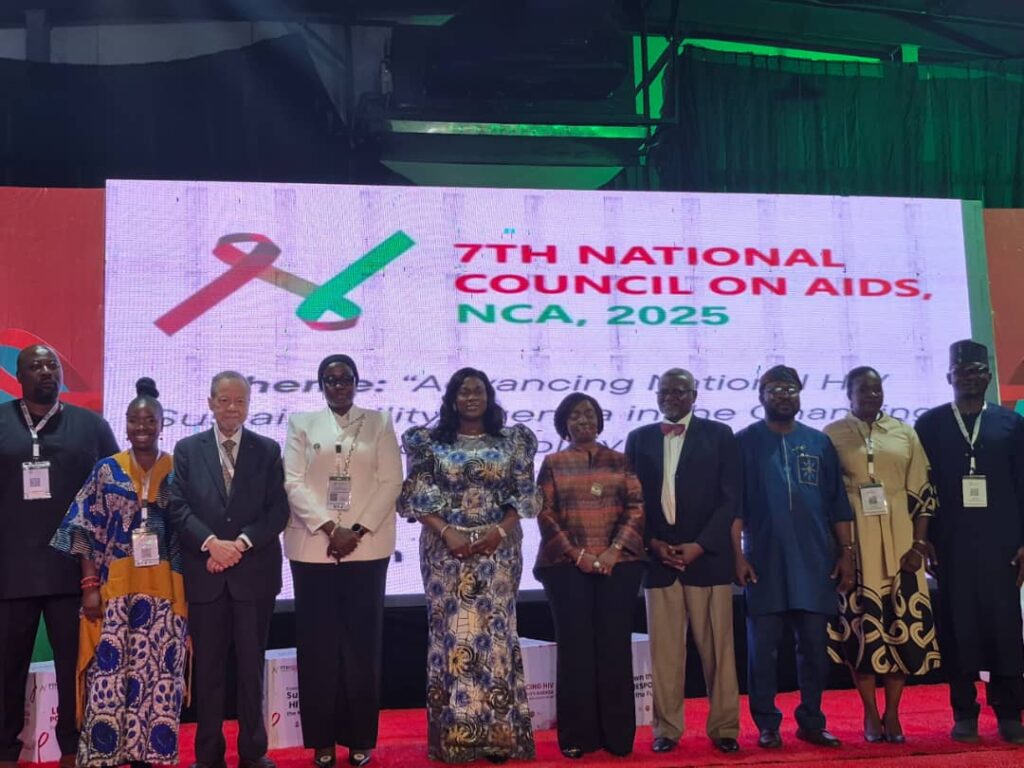The Director General, National Agency for the Control of AIDS (NACA), Dr Temitope Ilori, has said Nigeria should urgently take full ownership of its HIV response in the face of declining international support and shifting global aid policies.
Ilori made the call on Tuesday in Lagos while delivering her welcome address at the opening ceremony of the Seventh National Council on AIDS (NCA) Meeting, the highest policy-making and coordinating platform for HIV/AIDS response in Nigeria.
The three-day council meeting has the theme: “Advancing National HIV Sustainability Agenda in the Changing Global Policy on Aid”.
Ilori described Lagos as a symbol of resilience, innovation, and qualities which remained vital to the country’s pursuit of a sustainable HIV response.
Highlighting the changing global development landscape, Ilori noted that Nigeria must urgently adapt its strategies to ensure programmatic and financial sustainability for HIV, Tuberculosis (TB) and Malaria interventions.
According to her, dwindling development assistance makes it imperative to build domestic capacity, strengthen sub-national systems, and harness multi-sectoral collaboration.
“The 2025 NCA meeting is more than a routine gathering; it is a pivotal moment for reflection, realignment, and renewed action, as the theme is not only timely but essential,” she said.
She revealed that the Federal Government, under the leadership of President Bola Tinubu, has demonstrated commitment to HIV sustainability by releasing 200 million dollars to address immediate gaps and mitigate risks posed by the suspension of some donor support.
Ilori also announced that Nigeria is currently piloting the National HIV, TB, and Malaria Sustainability Plan in seven states—Akwa Ibom, Ebonyi, Anambra, Gombe, Kwara, Kaduna, and Lagos—with support from UNAIDS and the Global Fund, and with plans for nationwide scale-up.
“This bold step underscores Nigeria’s determination to take full ownership of its HIV response and ensure the uninterrupted delivery of life-saving services.
“But, more needs to be done by the Nigerian government to fill the gap, particularly in the area of funding, because most of the sponsors are international donors, and the sponsorships have declined.
“So, there is a need to advance the National HIV Sustainability Agenda amid changing aid dynamics, promoting multi-sectoral approaches for sustained development impact and strengthening sub-national structures for more effective and localised health responses,” she said.
The NACA boss urged all stakeholders to actively participate in the deliberations and contribute solutions that are innovative, sustainable, and tailored to local realities.
“Let us continue to push boundaries, embrace new technologies, and deepen partnerships. Our journey toward an AIDS-free Nigeria depends on our resolve, collaboration, and ability to adapt to new realities,” she added.
The wife of Lagos State Governor, Dr Ibijoke Sanwo-Olu, reiterated the commitment of the state government to strengthening the national HIV response and ensuring quality healthcare services.
Sanwo-Olu said that to end HIV as a global health threat, the state had adopted a multi-sectoral approach that included education, economic empowerment, access to quality healthcare and tailored interventions.
“In Lagos State, we do not see HIV as merely a health issue; it is a developmental challenge with far-reaching implications on families, communities and economic future.
“To this end, the state has adopted a multi-sectoral approach that includes education, economic empowerment, access to quality healthcare and tailored interventions for key vulnerable populations, particularly women, children and adolescents,” Sanwo-Olu said.
The Keynote Speaker, Dr Iziaq Salako, expressed optimism that by the end of the deliberations, there would be strategic plans and approaches to end HIV as a public health threat in Nigeria.
Represented by Prof. John Obafunwa, Director-General, Nigerian Institute of Medical Research (NIMR), Salako assured that the institute is ready to partner with NACA in the area of research.
The opening ceremony was graced by top government officials, international development partners, civil society leaders, and representatives from state AIDS control agencies.
The Lagos State Government, in partnership with the Lagos State Agency for the Control of AIDS (LSACA) played host to the 2025 council meeting















